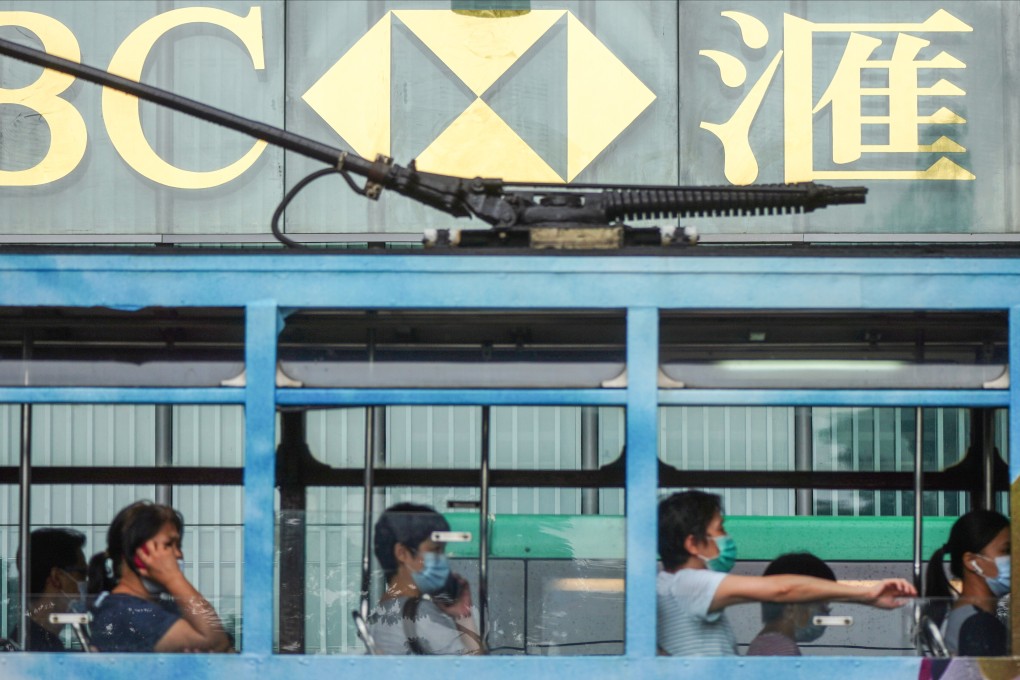Advertisement
HSBC shares post biggest intraday rise in a decade after biggest shareholder Ping An increases stake in lender
- HSBC’s shares rose nearly 11 per cent in Monday’s afternoon session in Hong Kong, its biggest intraday increase since 2009
- Ping An’s asset management arm bought 10.8 million shares last week, increasing its stake to 8 per cent
Reading Time:2 minutes
Why you can trust SCMP

HSBC’s shares had their biggest intraday jump in Hong Kong in more than a decade on Monday as its largest shareholder increased its stake after the bank’s share price fell to a 25-year low last week.
The bank’s stock rose nearly 11 per cent in Monday’s afternoon session, its largest intraday increase since 2009. Its shares finished the day 9.2 per cent higher at HK$30.80 (US$3.97).
In a stock exchange filing on Friday, Ping An Insurance Group said its asset management arm bought 10.8 million HSBC shares last week, raising its stake in the bank to 8 per cent from 7.95 per cent.
Advertisement
On Sunday, a Ping An spokesman said the insurer views HSBC as a “long-term investment”, but did not provide any additional comment on why its asset management arm bought shares at this time. The Shenzhen-based insurer has been a major stakeholder in HSBC since 2017.

04:41
HSBC doubles down on Asia in massive staffing overhaul
HSBC doubles down on Asia in massive staffing overhaul
The biggest of Hong Kong’s currency issuing banks, HSBC fell to a 25-year low last week as its shares declined 8.9 per cent after media reports said it and other banks processed trillions of dollars in money transfers despite concerns about potential criminal activity, and the Chinese nationalistic tabloid Global Times said HSBC could be included in Beijing’s newly created “unreliable entities” list.
Advertisement
Advertisement
Select Voice
Select Speed
1.00x